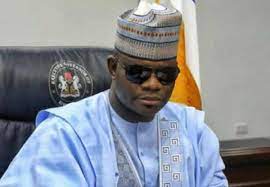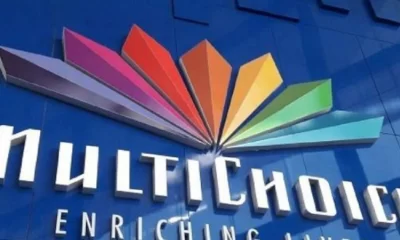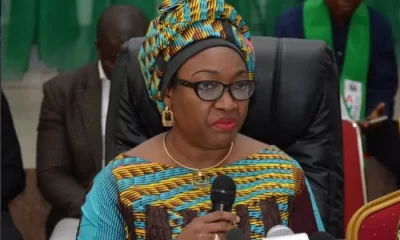News
Nigeria To Repay IMF $3.4bn In 5 Years
A day after the International Monetary Fund (IMF) granted Nigeria’s request for a $3.4 billion emergency fund, the federal government has said that it is a flexible loan, which will be repaid in five years at one per cent interestrate.
Prior to the new twist, Nigerians were inundated with reports that the money was a drawdown on Nigeria’s savings with the IMF without any conditions attached.
But yesterday, the government admitted that the Rapid Financing Instrument (RFI) was approved for the country on Tuesday, with strings attached.
Speaking on a Nigerian Television Authority (NTA) programme, which LEADERSHIP monitored in Abuja yesterday, the minister of Finance, Budget and National Planning, Mrs. Zainab Ahmed, explained that the $3.4 billion facility was granted at one per cent interest rate with a three and half years repayment moratorium. She added that the facility has a repayment plan of five years.
Addressing journalists earlier in the month, the minister had said: ”This (the $3.4billion emergency support fund) will not be tied to any conditionalities.”
In a swift reaction, a professor of capital market, Uche Uwaleke, urged the government ”to be as wise as a serpent” in her dealing with the IMF.
The former Imo State finance commissioner said that while an additional soft credit line of $3.5 billion which the government hopes to get from the World Bank ($2.5 billion) and the African Development Bank ($1 billion) to wage COVID-19 war stands to reason, the same cannot be said of the $3.4 billion loan from the IMF.
In a telephone interview with LEADERSHIP, Prof. Uwaleke said that his reservation was to the fact that the IMF credit facility was a non-concessional loan with commercial terms being disbursed under the IMFs Rapid Financing Instrument (RFI) which, in addition to a basic interest rate charge, attracts a commitment fee, service charge and a surcharge on outstanding credit.
Financial assistance under the RFI is provided in the form of outright purchases without the need for a full-fledged programme or reviews. A member country requesting RFI assistance is required to cooperate with the IMF to make efforts to solve its balance of payments difficulties and to describe the general economic policies that it proposes to follow. Prior actions may be required where warranted.
He explained that the facility was like a cooperative society granting its member loan the amount of which is determined by what is contributed. The country is not leaving the IMF membership by pulling its contribution/quota known as Special Drawing Rights.
Uwaleke said that ”while the government is encouraged to muster every resource in the fight against the pandemic, entering into a debt trap will clearly jeopardise economic recovery effort post COVID-19.”
Beyond that, Uwaleke said that except the relevant section is amended by the National Assembly, the IMF loan, unlike the long tenured concessional facilities from the World Bank and AfDB, contravenes Section 41 of the 2007 Fiscal Responsibility Act which requires that the government can only go for long -term concessional loans for capital expenditure.


 Politics20 hours ago
Politics20 hours agoBreaking: Prominent Nigerian Politician Is Dead(Photo)

 News23 hours ago
News23 hours agoFormer ECOWAS Court VP berates EFCC chairman over press briefing on Yahaya Bello

 Top Stories5 hours ago
Top Stories5 hours agoMohbad’s toxicology result ready…what you need to know

 Top Stories24 hours ago
Top Stories24 hours agoBreaking: Parents ‘suspect foul play’ as boy, 4, dies in BrickHall School Abuja

 Top Stories18 hours ago
Top Stories18 hours agoRunway Mishap: ART Kicks Against Dana Suspension, Cautions Festus Keyamo

 News5 hours ago
News5 hours agoFG to review fresh price hike of DStv, GOtv packages

 Top Stories5 hours ago
Top Stories5 hours agoWitness Reveals How Ex-HoS, Oyo-Ita, Others Diverted ₦3 Billion To Private Companies

 Politics23 hours ago
Politics23 hours agoBreaking: 118 Inmates Escape As Rainstorm Wreaks Havoc At Suleja Prison






